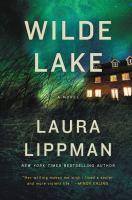
In Laura Lippman's latest mystery, Wilde Lake, Luisa Brant is the newly-elected state's attorney for Howard County, Maryland, and she has some big shoes to fill. Her father held the position and was greatly admired (to the extent that any politician can be) during much of her childhood, and Luisa has just beaten out her mentor for the role in a hotly-contested election. Eager to prove herself worthy of her new position, she decides to personally act as the prosecutor in the first murder case that comes across her desk. The seemingly-straightforward killing of a single woman in her apartment by a homeless man, which initially appears to be a cut-and-dried case, becomes infinitely more complicated as connections between the major figures in the murder and a formative event in Luisa's childhood are revealed. Her certainty about the moral righteousness of her father, and what she thought she knew about her family, her friends, and what happened on that crucial night in her childhood are all gradually chipped away.
I have read the first two-thirds of Lippman's Tess Monaghan series, and a couple of her other stand-alone novels as well. Lippman is consistently able to develop strong characters and a very specific sense of place. Although her mysteries are typically set in Lippman's hometown of Baltimore, this book takes a step slightly further afield to Columbia, Maryland, the planned community halfway between Baltimore and Washington, D.C. Idealistic in its origins, intended to break down class, religious, and racial boundaries by design--and failing to do so almost from the outset--Columbia is, in the present, seen as nothing more than a tacky and deeply-flawed suburb. The decline in the image of Columbia mirrors Luisa's disillusionment with her family and friends, particularly her father and brother, A.J.
Incidentally, Wilde Lake was partially inspired by To Kill a Mockingbird, and there are indeed numerous parallels between the two books. It's absolutely not necessary to have read that classic novel to appreciate this one, and while it entertained me to try to spot the similarities between the two, I think readers will find Lippman's writing has more in common with other mystery authors such as Tana French, Julie Smith, and Lisa Lutz than Harper Lee.
